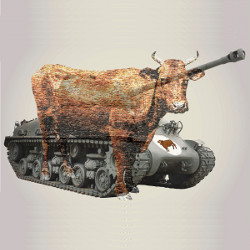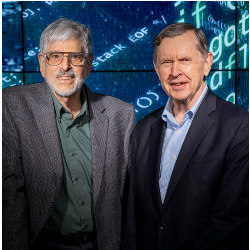Screen Recognition Makes Apps More Accessible
News
Apple's Screen Recognition algorithm identifies the metadata necessary to communicate the functions of any app or Web page to the visually impaired.
Joke-Cracking Chatbots Boost Learning Levels
The role of humor in training, and conversing with, chatbots.
Central bank digital currencies hold the promise—and peril—of changing money as we know it.
There is an emerging effort to tap artificial intelligence to write code based on short text descriptions of what the code should do.
Formal Software Verification Measures Up
Verified coding techniques use mathematical proofs to ensure code is error-free and hacker-resistant. Can the approach revolutionize software?
Charles M. Geschke (1939-2021)
Charles M. Geschke helped create the modern world of computing, where beautiful typography and expressive, artistic graphics are as integral to most users' experience as numbers and text.
A Battery-Free Internet of Things
The Internet of Things can thrive without hardwired or consumable power sources.
Droids, drones, and driverless technologies are fueling a supply chain revolution.
Tech Company Initiatives Encourage Greater Diversity, Equity, Inclusion
CEOs increasingly consider DEI a strategic business priority.
Honoring the Ties Between Computer Science and Mathematics
László Lovász and Avi Wigderson were awarded the 2021 Abel Prize.
Defending Against the Next Stuxnet
Experts are skeptical of an Iranian plan to evade Stuxnet replay attacks.
IBM, Google, and Microsoft are all developing algorithms that understand the meaning of words.
2020 ACM A.M. Turing Award recipients Alfred Aho and Jeffrey Ullman helped develop formal language theory, invented efficient algorithms to drive the tasks of a compiler, and put them all together in 'The Dragon Book.'
ACM Fellow Jack Minker was a leader in the development of automating logistic reasoning, but he is perhaps best known for his efforts to promote the social responsibility of scientists and human rights.
Shape the Future of Computing
ACM encourages its members to take a direct hand in shaping the future of the association. There are more ways than ever to get involved.
Get InvolvedCommunications of the ACM (CACM) is now a fully Open Access publication.
By opening CACM to the world, we hope to increase engagement among the broader computer science community and encourage non-members to discover the rich resources ACM has to offer.
Learn More






















